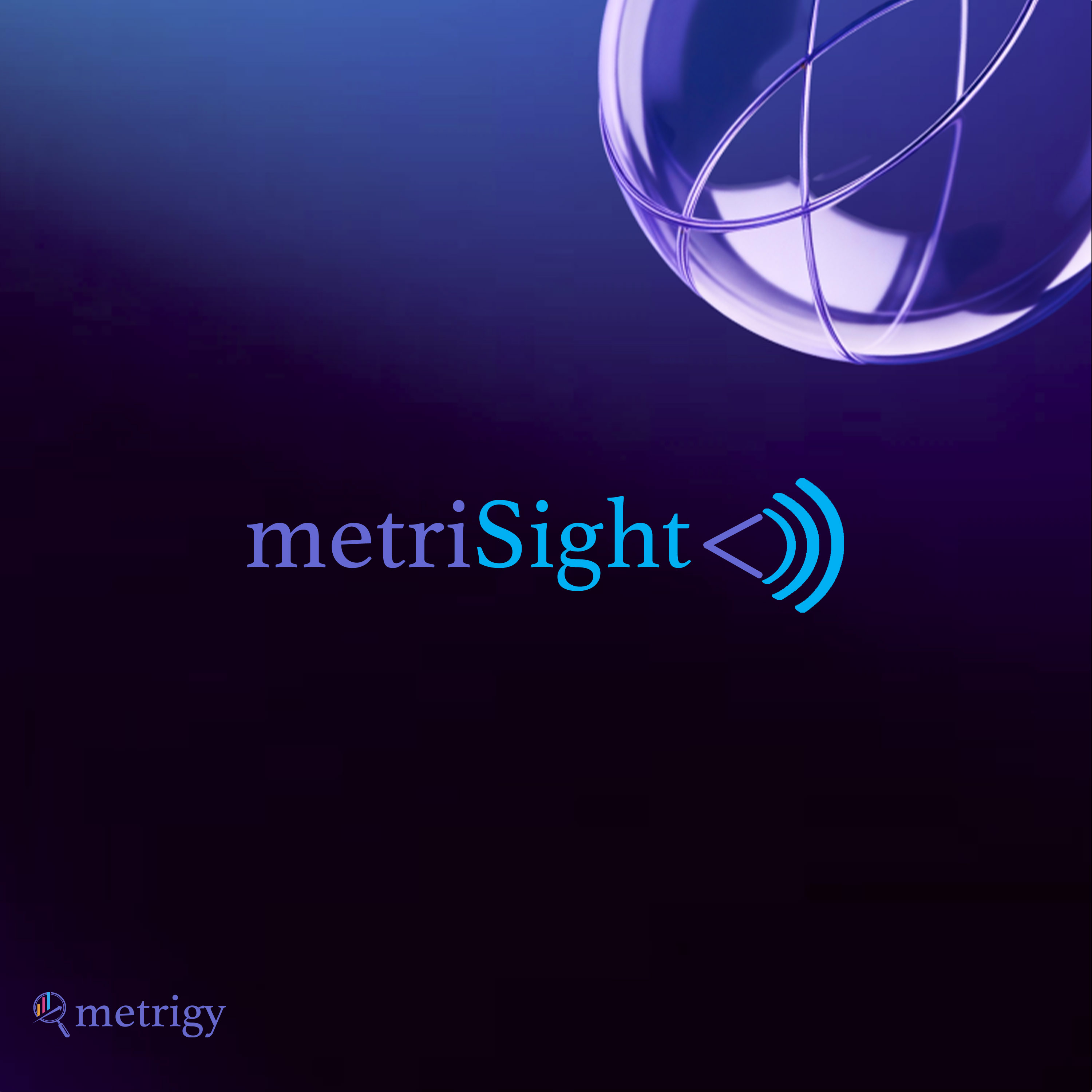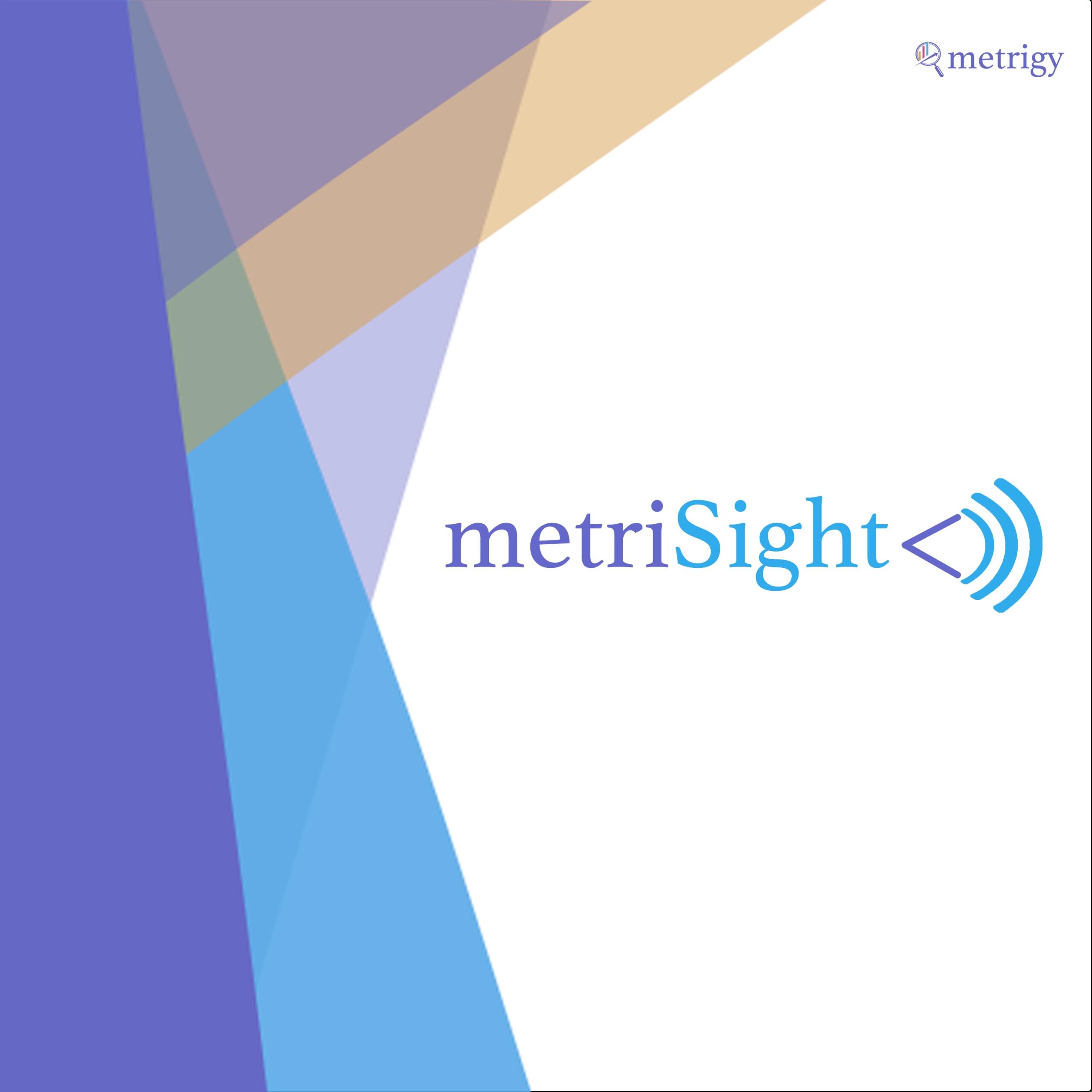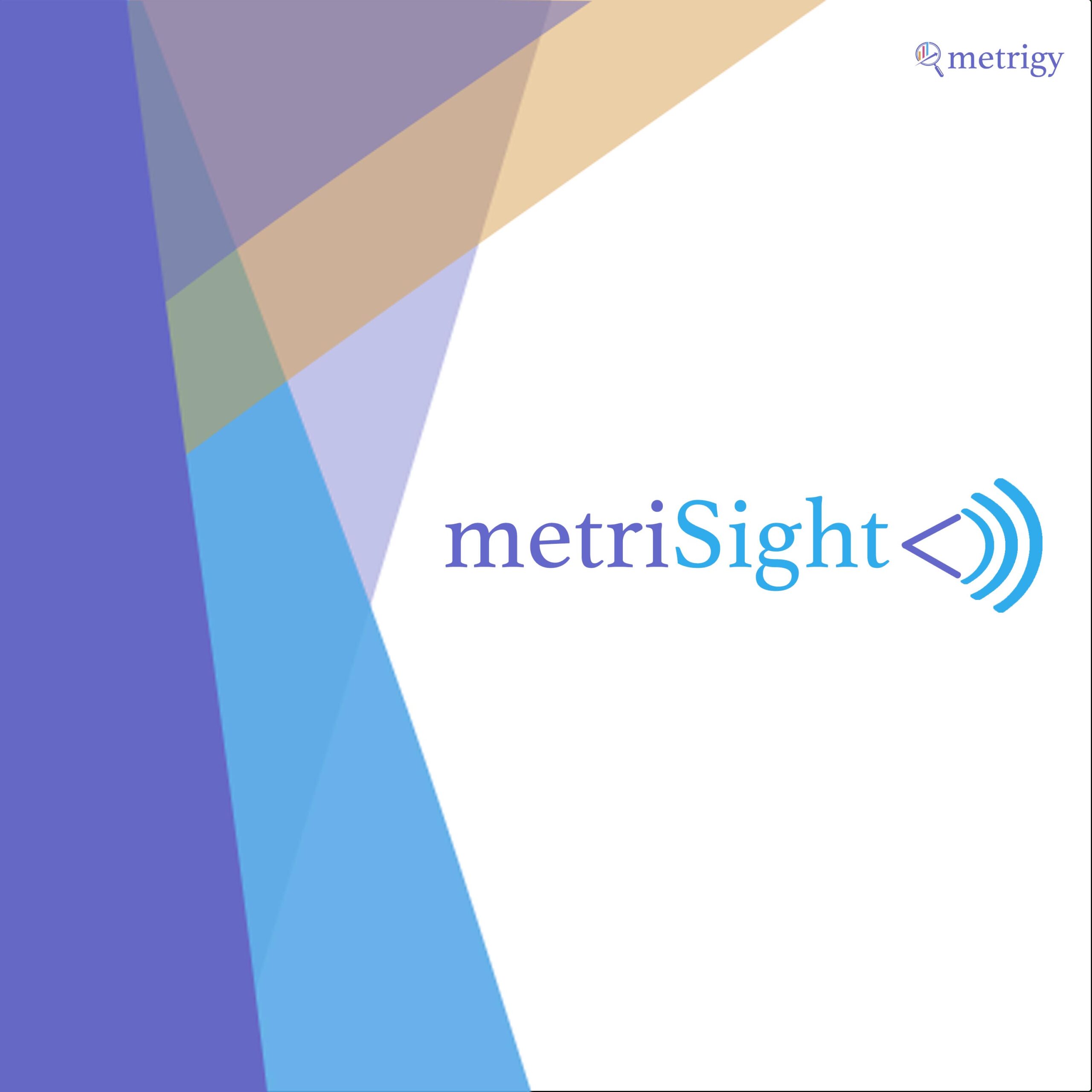[00:00:22] Speaker A: Hello and welcome, everybody. Thanks for tuning in to metrocyte, a podcast for metrogyl. BETH I'm Beth Schultz. I'm the Vice president of research and principal analyst here. And I'm here today with my colleagues Robin Garris, who's the CEO and principal analyst, and Lanie Haxma, who is the senior research analyst. And we're really excited to share our 2025 Metrostar Award winners and customer experience.
Before we announce the winners, let me first tell you about this award program. So we base these awards on both customer ratings and quantitative metrics that correlate to the use of providers, products and services with measurable business success.
We gather this data in our annual global buyer side Metrocast study. And for this year's study, we had nearly 1400, about 1397 to be exact.
CX and IT leaders. Participants we use the customer sentiment ratings and business success metrics to determine our metrostar winners. And we have three categories.
So we have the overall winners. That's our metrostar Top provider. And the Top Provider award recognizes technology providers whose customers achieved high business success and at or above average customer sentiment ratings. And then we separately recognize top business success. And that award highlights providers with at or above average percentage of customers achieving business success. And and then top customer sentiment is for providers with at or above average customer sentiment scores.
So, Robin, what else should we let folks know about the metrostar Award?
[00:02:02] Speaker B: Just to give you a little bit more detail on how we gather the data, because I think it's really important to understand the methodology. It's different than, you know, some of the typical analyst award programs where it's more the just, you know, it's just based on, you know, the analyst analysis and opinion of the providers, for example, or the products. We we actually do this all about this is all from customers of these providers. So when we look at business success, for example, we evaluated anywhere from three to five business success metrics for each topic. Typically it was four. And we asked research participants how these metrics changed with the use of the provider that they were rating. So for example, we asked about things like CSAT improvement, first call or interaction resolution, percentage cost per interaction, all sorts of things that you'll hear in a minute. But we calculate the average for all of those and those who are at or above average, and at least two of the three, three of the four or four of the five, so you can miss one, won a top business success award for customer sentiment. We asked participants to rate their providers on a 1 to 10 scale where 1 was the worst, 10 was the best in like 7 to 8 categories for each, depending upon the topic we're looking at. And then we calculate the average score across all of these categories and then an overall average. So those with scores that were at or above average for the overall number, they won a top Customer Sentiment award. And of course if you won both of those, then you want a full out top provider, metrostar. So what we do with this information is we use it to help companies, you know, it leaders select the best provider for their needs. And we also can show the vendors where they are positioned compared to their peers who can get into some of the detailed ratings and all that kind of stuff.
We looked at nine areas this year, a little bit down from last year, CCAS and on premises Contact center platforms. We looked at CPaaS, CRM agent assist, text, AI agents. We did try for voice but just didn't get enough response on the voice AI agents quite yet. We're hoping for next year. Workforce Engagement Management, Voice of the Customer and self service Knowledge Management.
So that's about, that's what we looked at this year.
[00:04:27] Speaker A: Okay, great. So with that said, why don't you, why don't you kick us off?
We want to talk about all of the awards. We had gave out 71 total.
That was down from 103 last year. And we also had more categories last year.
[00:04:44] Speaker B: Right.
[00:04:45] Speaker A: And then we had 32 top providers this year, down from 50 last year. And also this year we had 26 top customer sentiment award winners and 13 top business success with winners. So Robin, kick us off with a discussion of CCAs.
[00:05:03] Speaker B: So this is obviously Contact center as a service.
One of the big areas of CX platform, area of CX.
10 winners overall this year, top provider winners.
And I'm trying to keep, hopefully I do this. All right, we all will. It's alphabetical order. There's no, there's no, you know, this one did better than that one and they're in some sort of a quadrant. Just the top providers. 5, 9, Genesis, nice Vonage, Zendesk and Zoom. And it's a pretty crowded area. You know, we have ratings from, I don't even remember how many, about 19 or so providers, you know, so there's a lot there. And the top customer sentiment score was 8.05 and Vonage actually got the highest with 8.44.
The business success metrics that we looked at first contact resolution had to be 65% or greater customer satisfaction. We used a rating that you're going to hear throughout the customer satisfaction rating we used was a 1 to 7 rating because so many companies use different measurements. Some use csat, nps, Customer Effort Score, custom ones. You know, we, we just put together our own rating, a 1 to 7 rating. And we asked companies that participated to basically translate whatever they were using into this 1 to 7 rating. So for customer satisfaction in CCAs, it was a 5.7 or better on a 1 to 7 scale. Agent attrition was 27.5% or less.
And we also asked a question about whether executives view the contact center as a value center or a cost center. And those in the CCAS top provider area viewed they had to have at least 69% of their customers viewing the contact center as a value center in that category.
So in addition to those top providers I already mentioned, 8x8, Content Guru and RingCentral won a customer sentiment award and Dialpad won a business success award. So that's CCAS.
[00:07:06] Speaker A: About On Prem, the other half of CCAs.
[00:07:09] Speaker C: Right.
[00:07:10] Speaker B: So yes, we're still we. And by the way, you know, a lot of people talk about On Prem like, oh, everyone's moved to the cloud. I mean we certainly see movement to the cloud, don't get me wrong. But there's a lot of companies in the, you know, in the context center space that are still on premises and so we still want to track that area and see what's going on. There were five winners overall. Of course, there are a lot fewer companies in the on premises world than in the CCAAS world. The top providers for on premises contact center were Cisco and Zendesk.
The average score was 7.81. Cisco had the highest at 7.92.
Business success that we looked at.
First caller interaction resolution, 64% or higher. CSAT 5.7 or more. Again, agent attrition, 27.6% or less. And 69.2% of their customers had to select the contact center as a value center, not a cost center. So on the customer sentiment side, we also saw, you know, good marks and awards given to Alcatel, Lucent Enterprise and Genesis. And then business success Avaya. So that looks at our contact center platforms.
[00:08:16] Speaker A: Great. Now let's talk about the other kind of element in customer service. Chief technology, of course is customer relationship management. So Lainey, why don't you give us the CRM rundown?
[00:08:30] Speaker C: So for CRM we had nine winners overall. It's down from 11 last year. We had one Metrostar top provider who won in both customer sentiment and business success and that was HubSpot our customer sentiment average needed to was 7.90.
HubSpot actually had the highest customer sentiment rating of 8.49.
So our business success metrics that we measured here were active users.
So this is the percentage of users with CRM licenses that are actively using the platform on a consistent basis. So that's 63.7% or more.
Lead conversion rate had to be 47.2% or more.
Customer retention rate for the calendar year of 2024, 69.1% or more.
And then employee efficiency, meaning the percentage by which CRM makes employees more efficient was 48.3% or more.
So our customer sentiment winners were Adobe, Oracle, Salesforce, Zendesk and Zoho. And then for business Success was Microsoft, SAP, and ServiceNow.
[00:09:53] Speaker A: Okay, great.
So I'm gonna talk about another platform. Communications platform. As a service in this category, we had nine winners overall, down slightly from last year when we had 10.
Our top providers this year are Infobip, Link Mobility, Cinch, and Tata Communications.
Overall, our customer sentiment customer sentiment score average was 8.19 and Cinch had the highest there at 8.98, which is the highest for CPAAS and the highest of all customer sentiment ratings across all technology categories.
We had four business success metrics that we looked at for CPaaS. The first was the speed to market direction enabled through automated notifications.
That was 53.8% or higher.
CSAT going up from the ability to send out those automated notifications, a 55.1% increase or higher Here we looked at Contact center as value center as well, and slightly higher than what we saw in some of the other categories. 71%, 1.6% or more. And then overall CSAT at 5.9 or higher.
Our customer sentiment winners were Cisco Route Mobile, Cineverse and Vonage. And then Microsoft won for business success.
Okay, moving on. Let's talk about some AI categories. I'll start with text AI agents. And we had three winners overall in this category, down from seven last year.
Our top providers were aws, Google Cloud, and IBM. And then we had no individual customer sentiment or business success winners in this category.
8.18 was the customer sentiment score, average score, and our business success metrics. We looked at cost per interaction and had to be a measured decrease of 15% or more movement on customer satisfaction. So had to show a measured increase in customer satisfaction percent of interactions that text agents handled without live agent support.
That had to be 52.2% or more to qualify. And then customer satisfaction rating of 5.9 or higher.
Robin, want to talk about agent assistance?
[00:12:32] Speaker B: Yeah, and this is such a hot area these days, you know, so this is Agent Assist or some call it copilot, where you have AI agents basically assisting and helping a live agent to basically, you know, serve a customer more efficiently, better with more context, all that kind of stuff. So seven winners overall in this area and that was down from nine last year. We do see a little bit of consolidation and you know, in this area for sure. Top providers. Providers AWS, Google Cloud, IBM, NICE and Twilio.
So the average customer sentiment score is 8.24 and actually the top sentiment score was not someone who was a top provider. I was Content Guru which was had an 8.75 and that obviously would have given them a customer sentiment score. They did not however get the business success. So they weren't a top provider but did very well in sentiment. The business success metrics that we looked at, the revenue direction was up by 45.1% or more of the provider's customers.
Revenue percentage increase 32.3% or higher. So think about, you know, we see agent assist a lot of times being used to help a customer service agent, for example, make an upsell pitch and do so with context that AI provides to them.
Percentage of customers with an increased CSAT score had to be 71% or more of their customers. And then the CSAT increase itself was 37.8% or higher. And then lastly we also looked at turnover rate for 2024 and that had to be, that's the agent turnover rate 32% or less. So we did look at a lot of different criteria here in Agent Assist. It's just a very important and growing area these days. So as I already mentioned, Content Guru got the customer sentiment award along with Talkdesk and there were no individual winners on business success for agent Assist at this point.
[00:14:31] Speaker A: Okay, great.
I'll jump in now with a look at self service knowledge management here in this category we had 10 winners overall down from 13 last year. Our top providers this year are Nice, Upland, Zendesk and Zoho.
Customer sentiment score average was 7.81.
Bloomfire had the highest at 8.49 and therefore was also a customer sentiment winner.
Along with Salesforce and then business success metrics we looked at knowledge management enabling self service resolution.
So 74.3% of had enabled problem solving through knowledge management.
Self Service interactions resolved 54.4% or more and then CSAD at 5.7 or higher. As I mentioned, Bloomfire And Salesforce won our customer sentiment awards in this category. And then for business success, we saw Document360, HubSpot Live Agent, and ServiceNow.
Okay, a couple more awards. Robin, why don't you talk about Voice of Customer?
[00:15:51] Speaker B: Yes, Voice of Customer, another very important area, especially as companies start deploying more and more technologies for cx, you know, using more and more AI related technologies for cx. We want to make sure that customers like what they're doing, want to understand what customers think, and so we like to get response from them. And so this covers a lot of the survey tools and analytics tools that can be used to get that feedback from them. So we had nine winners overall. Top providers, Confirm It. Nice. And question pro, 7.85 was the average sentiment score with Confirm it having the high at 8.34.
The business success metrics that we looked at, Agent performance improvement had to be 43.2% or more. Customer ratings growth, 46.1% or more. CSAT a 5.8 or more, and then average handle time at least 14.6 minutes. So in addition to those top providers, we saw alkemer, Qualtrics and SurveyMonkey with a customer sentiment award, and then Concentric's Customer Gauge and Questback with a business success award.
[00:17:00] Speaker A: Okay. Last but not least is workforce engagement management. Laney, you've been immersed in workforce engagement management. We have a study coming out out any day now. So why don't you walk us through this category?
Wonderful. Yep.
[00:17:14] Speaker C: So for workforce engagement management, we had nine winners overall, which is actually up from eight last year.
Our metros to our top providers are Five, Nine, Genesis, Envision, and Zoho.
Customer sentiment average was 7.85 and Five. Nine had the highest at 8.88.
Our business success metrics we measured. Agent performance change had to measure better.
Agents working at maximum capacity had to be 23.9% or more.
Supervisor productivity, this was a had to be 45.1% boost or more due to WVM.
And then customer satisfaction had to be 5.8 or higher.
Our customer sentiment awards go to 8x8 aspect, Avaya, Twilio and Barrett. And for business success, we did not have any individual winners.
[00:18:19] Speaker A: Okay, thank you, Robin and Lanie. That wraps up the winners. We want to say congratulations to all of the companies that earned metrostar recognition this year.
Before we sign off, anything else you wanted to add, Robin? Any surprises you found or what, you know, what you're watching for coming up?
[00:18:39] Speaker B: Yeah, I mean, I'd just like to congratulate as well, you know, as well about the winners because it's not easy to win these awards. I would say it's, you know, it really is a reflection of what your customers think, what you're doing and, you know, so I do think there's some new names this year that we hadn't seen in years past. So it's great to look at the reports that we'll be coming out with.
And I think, like, moving forward into next year, I hope to be able to do more emerging categories, things like voice, AI agents or CX platforms, as these are emerging AI bot studios. So the ability to create AI agents or bots on the fly, you know, things like that. I'd like to be looking at more categories, but, you know, it does take a while for people to start using these and to have enough of a, of a critical mass where they're responding and, you know, you have enough measurements for enough providers to include them. So hopefully that'll change moving forward. I will say that this industry is moving so quickly. The pace of innovation is like, I've never seen it in my 30 years in the business. And so I'm just, you know, kind of excited to see what's coming next.
[00:19:48] Speaker A: As am I, for sure. It should be a good, good year.
Okay, so folks, if you're interested in learning about our metrocast service or our other research, we really would be happy to hear from you.
Feel free to reach out to us individually or just use the contact button on the Metro g
[email protected].
and that is all for now on behalf of the Metro G team. Goodbye till next time and take care, everybody.


